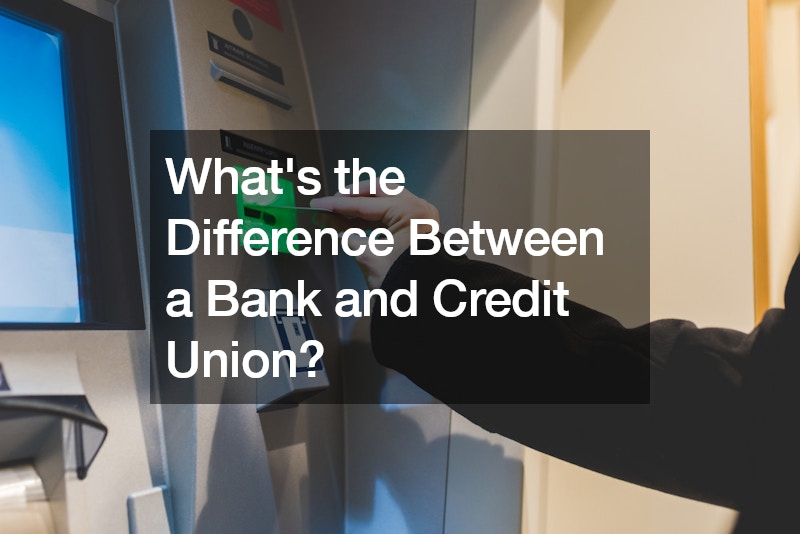
When comparing financial institutions, many individuals find themselves weighing the differences between banks and credit unions. Both offer essential banking services like savings and checking accounts, loans, and credit cards, but they differ fundamentally in structure, objectives, and benefits. Notably, many consumers find credit unions to be a superior choice due to their member-centric approach.
The primary distinction between banks and credit unions lies in their operational structure. Banks are for-profit entities owned by shareholders.
The primary goal of a bank is to maximize profits, which are then distributed to shareholders as dividends. In contrast, credit unions are not-for-profit institutions owned by their members. This cooperative structure means that any profits generated are returned to members in the form of lower fees, higher savings rates, and lower loan rates.
Membership is another key difference. Banks are generally open to anyone, while credit unions have specific membership requirements based on factors like geography, employer, profession, or affiliation with certain groups or organizations. This exclusivity helps foster a community-focused environment where members often receive personalized service.
One of the most compelling advantages of credit unions is their customer service. As member-owned institutions, credit unions typically go above and beyond to ensure their members’ satisfaction. Their local, community-based focus often leads to a more personal banking relationship. Employees usually know members by name and are more accessible and responsive to individual needs.
Moreover, credit unions often offer better rates and terms on financial products. Because they are not driven by profit like traditional banks, credit unions can afford to offer more competitive interest rates on savings and checking accounts, and lower rates on loans and credit cards. This can lead to significant savings for members over time.
Credit unions also tend to have lower fees than banks. Many credit unions offer checking accounts with no monthly fees, lower overdraft fees, and lower fees for using ATMs outside the network. This can be particularly beneficial for consumers who are looking to minimize their banking costs.
Additionally, credit unions are known for their commitment to financial education and community involvement. Many offer workshops and advice on budgeting, debt management, and financial planning, which are free for members. Their involvement in local communities often includes supporting local charities, schools, and community events, which enhances their role as a community pillar.
While both banks and credit unions provide essential financial services, credit unions may offer a more appealing option for those seeking a customer-focused, cost-effective, and community-oriented banking experience. Their not-for-profit status, favorable rates and fees, superior customer service, and commitment to community engagement are compelling reasons why many individuals prefer credit unions over traditional banks.
Watch the video above to learn more about why you should choose a credit union in Austin and other areas! .




